Bob Marley, a name that resonates globally, is synonymous with reggae music, cultural revolution, and a timeless legacy that continues to inspire generations. Born Robert Nesta Marley on February 6, 1945, in Nine Mile, Jamaica, he was more than just a musician; he became a voice for the voiceless, advocating for social justice and unity through his powerful music.
While Bob Marley’s individual impact is undeniable, his story extends beyond his own accomplishments. His family has become a dynasty of musical talent, with numerous children and grandchildren carrying forward his iconic legacy. This article delves into the Bob Marley Family Tree, exploring the ancestry that shaped the reggae legend and highlighting the achievements of his descendants who are keeping the Marley name alive and vibrant in the world of music and beyond. We’ll uncover the roots of his musical inspiration and the branches that have blossomed from his extraordinary life.
Tracing the Roots: Bob Marley’s Ancestral Heritage
Bob Marley’s origins are deeply rooted in the Jamaican landscape, born in the rural setting of Nine Mile in St. Ann Parish. His biracial heritage played a significant role in shaping his identity and artistic expression. His father, Norval Sinclair Marley, was a white Jamaican of English descent, while his mother, Cedella Malcolm, was an Afro-Jamaican woman. This dual heritage exposed Bob to diverse facets of Jamaican culture from a young age, influencing his worldview and musical inclinations.
Cedella Malcolm, in particular, was instrumental in grounding Bob in Afro-Jamaican traditions. She instilled in him a deep appreciation for the rhythmic and cultural heritage of Jamaica, which became a cornerstone of his musical identity. These ancestral connections are believed to have also contributed to Marley’s embrace of Rastafarianism, a spiritual and cultural movement that profoundly influenced his life and music.
From the infectious energy of ska to the spiritually infused rhythms of reggae, Bob Marley’s music became a powerful reflection of Jamaican life. His songs addressed universal themes of injustice, inequality, and the unwavering pursuit of freedom, resonating with the struggles and aspirations of people worldwide, echoing the experiences of his ancestors and contemporaries.
The Foundation: Bob Marley’s Parents and Their Stories
Norval Sinclair Marley
Norval Sinclair Marley, Bob Marley’s father, was born in Clarendon Parish, Jamaica. His background was a mix of European and potentially African ancestry, contributing to the complex tapestry of Bob Marley’s heritage. Norval was known as “Captain,” a nickname earned from his service in the British Army where he oversaw land subdivision projects for war veterans.
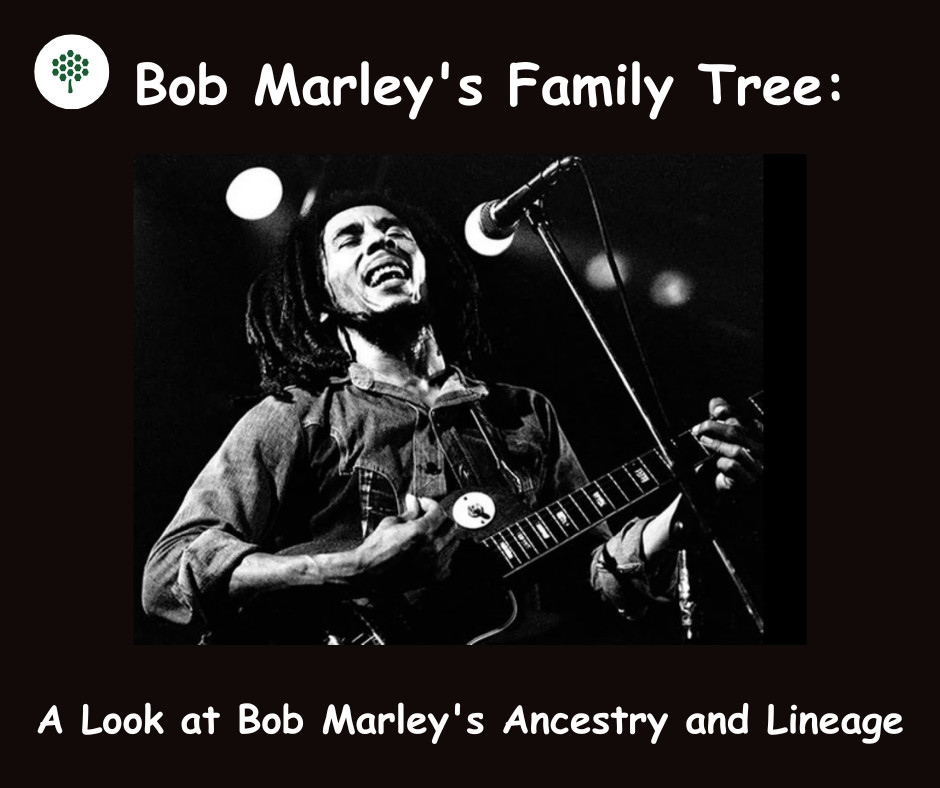 Norval Sinclair Marley, Bob Marley's Father
Norval Sinclair Marley, Bob Marley's Father
Despite being 64 years old when Bob was born, Norval’s presence in Bob’s early life was limited. He provided minimal financial support and was not a consistent figure in the family, passing away when Bob was only ten years old. This absence of a strong paternal figure left a notable void in Bob’s life, which scholars and biographers suggest may have contributed to his lifelong quest for identity, belonging, and spiritual grounding, themes often explored in his music.
Cedella Booker (née Malcolm)
Cedella Booker, born Cedella Editha Malcolm in Rhoden Hall, St. Ann Parish, Jamaica, was a central figure in Bob Marley’s life and upbringing. At the young age of 18, Cedella married the much older Norval Marley (59), and five years later, she gave birth to Bob. Following Norval’s death in 1955, Cedella made a significant move with Bob to Trenchtown, a marginalized community in Kingston. This relocation was driven by economic necessity, as Trenchtown offered more affordable living options for a young, single mother transitioning from rural to urban life.
Trenchtown, despite its hardships, became a crucible for Bob Marley’s musical development. It was in this vibrant and challenging environment that he encountered music and forged crucial relationships. While in Trenchtown, Cedella had another child, Claudette Pearl, with Taddeus Livingston, who was also the father of Bunny Wailer. Bunny Wailer would later become a founding member of The Wailers alongside Bob Marley and Peter Tosh in 1963, solidifying the intertwined destinies of these families.
Cedella’s life took another turn when she married Edward Booker, an American civil servant. This marriage led her to Delaware in the United States, where she had two more sons, Richard and Anthony. After Edward’s death in 1976, Cedella relocated to Miami, Florida. She remained a constant presence in Bob’s life, even in his final days, and was by his side when he tragically succumbed to cancer in 1981. Tragedy struck again when her son Anthony was killed in 1990 in a violent encounter with Miami police.
Miami became Cedella Booker’s permanent home. In 1993, she established the 9 Mile Music Festival, an annual event held in Miami dedicated to celebrating Bob Marley’s enduring legacy of peace, love, and unity. Cedella Booker passed away peacefully in her sleep in Miami on April 8, 2008, leaving behind a powerful matriarchal legacy within the Marley family.
Building the Branches: Key Figures in the Bob Marley Family Tree
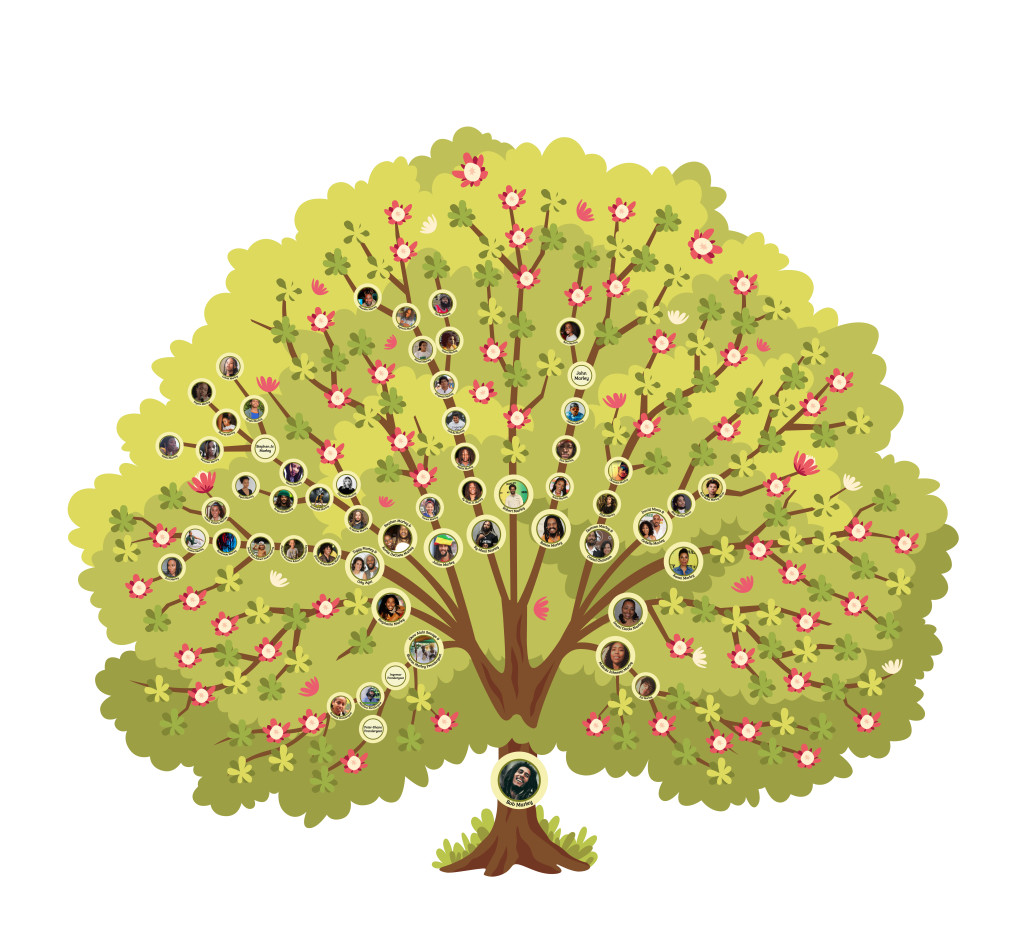 Detailed Bob Marley Family Tree Chart
Detailed Bob Marley Family Tree Chart
Albert Thomas Malcolm (Omeriah): The Grandfather’s Influence
Albert Thomas Malcolm, also known as Omeriah, Bob Marley’s maternal grandfather, was a significant figure in shaping Bob’s early spiritual and musical inclinations. Omeriah was a respected elder in the Jamaican Myal tradition, a spiritual practice with West African roots emphasizing healing, community, and connection to nature.
Omeriah’s influence on young Bob was profound. He introduced Bob to the tenets of Rastafarianism, which would later become central to Bob’s identity and message. Omeriah also nurtured Bob’s early appreciation for music and instilled in him a deep respect for African heritage and spirituality. This early exposure laid the groundwork for Bob Marley’s unique blend of music, spirituality, and social consciousness.
The Musical Children: Carrying the Torch
Bob Marley’s legacy is powerfully amplified by his children, many of whom have become accomplished musicians in their own right, extending and evolving the Marley sound.
Ziggy Marley
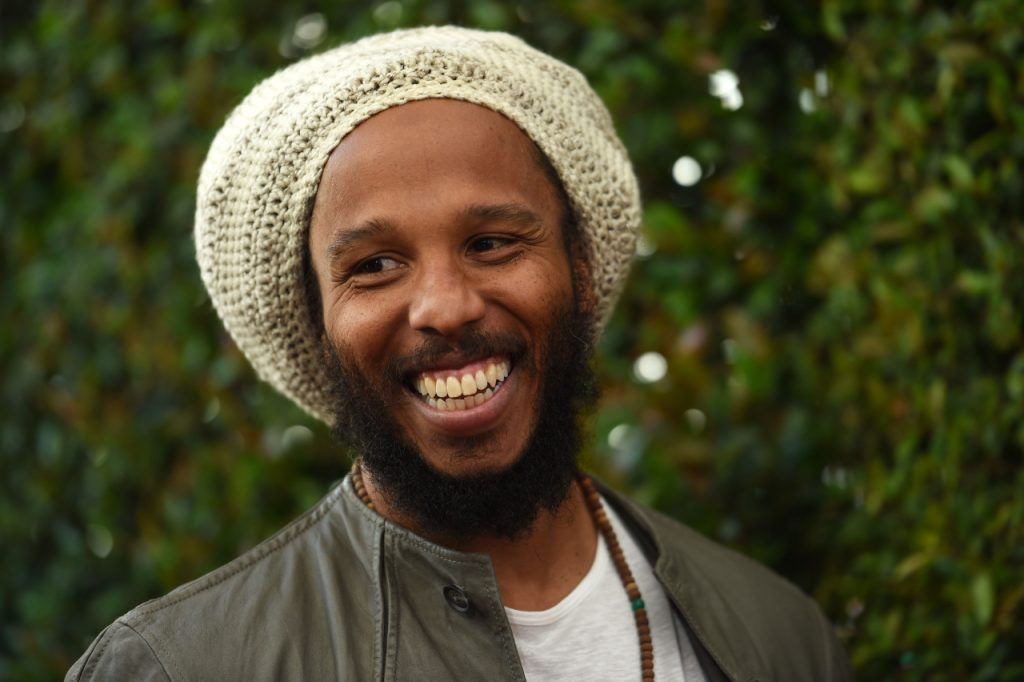 Ziggy Marley Performing Live
Ziggy Marley Performing Live
David Nesta “Ziggy” Marley, born October 17, 1968, is Bob Marley’s eldest son with Rita Marley. Ziggy has carved out a remarkable career as a Grammy Award-winning musician and philanthropist. He rose to prominence as the frontman of Ziggy Marley and the Melody Makers, a band featuring his siblings, and achieved international success with albums like “Conscious Party” and “One Bright Day.” Ziggy’s music continues in the reggae tradition while exploring themes of social justice and positive change.
Stephen Marley
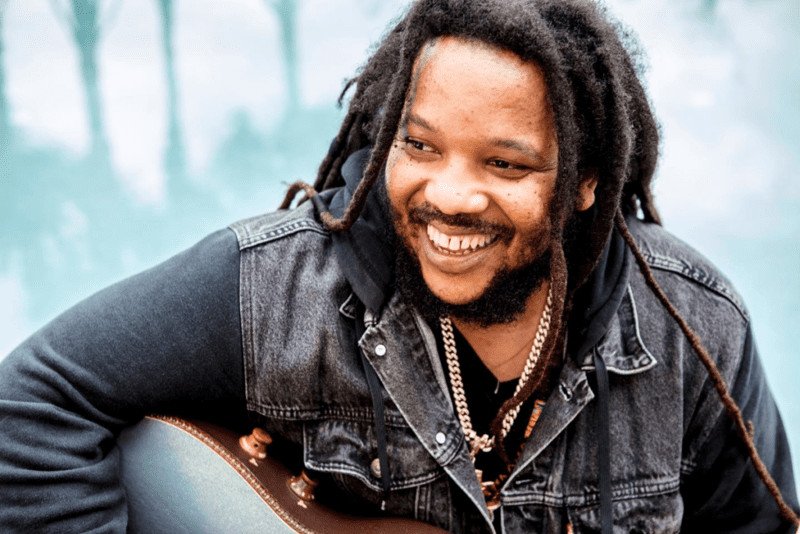 Stephen Marley Performing on Stage
Stephen Marley Performing on Stage
Stephen Robert Nesta Marley, born April 20, 1972, is another son of Bob and Rita Marley. Stephen is a highly acclaimed Grammy-winning musician and producer. He grew up immersed in his father’s musical world, learning directly from Bob and developing his own exceptional musical talents. Stephen has released several successful solo albums, including “Mind Control” and “Revelation Part I: The Root of Life,” celebrated for his soulful vocals and innovative production style. He has also produced albums for his siblings and other artists, significantly shaping the contemporary reggae landscape.
Julian Marley
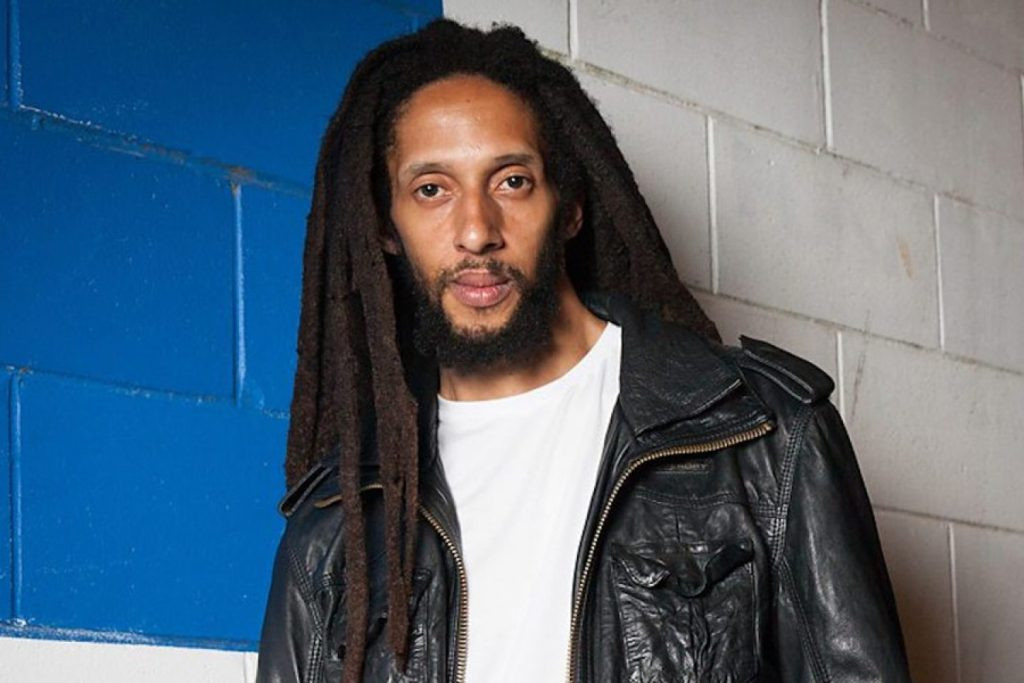 Julian Marley in Concert
Julian Marley in Concert
Julian Ricardo Marley, born June 4, 1975, is Bob Marley’s son with Lucy Pounder. Following in his brothers’ footsteps, Julian has become a prominent figure in reggae music as a talented singer-songwriter and musician. He debuted with the album “Lion in the Morning” in 1996 and has since released several well-received albums, including “Awake” and “As I Am,” further solidifying the Marley family’s musical dynasty.
Ky-Mani Marley
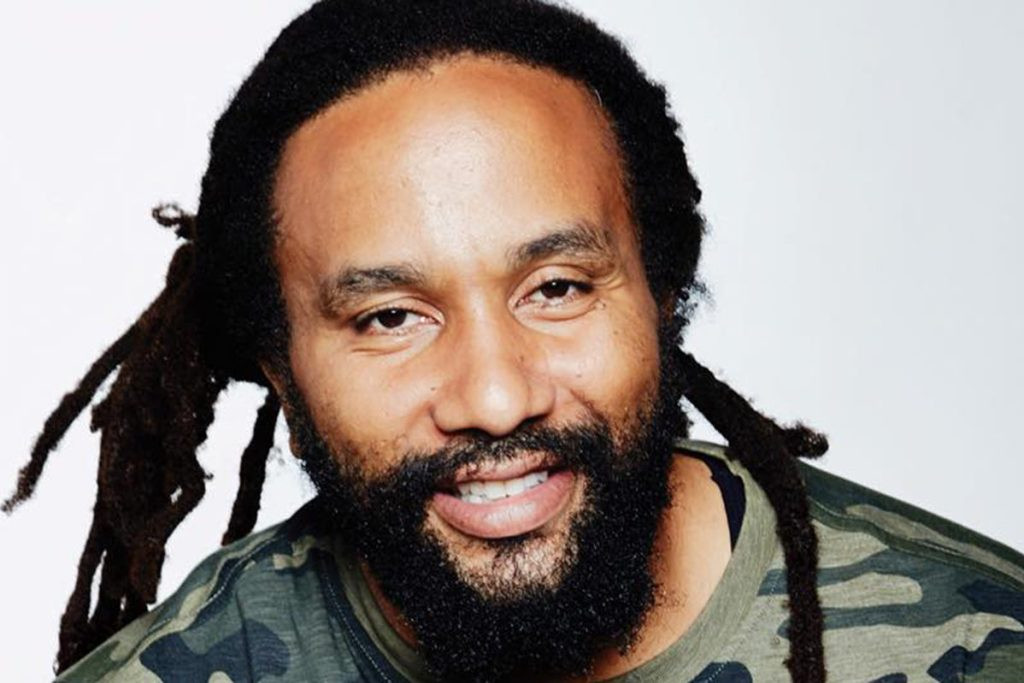 Ky-mani Marley Performing
Ky-mani Marley Performing
Ky-Mani Marley, born February 26, 1976, is Bob Marley’s son with Anita Belnavis. Raised in both Jamaica and Miami, Ky-Mani has forged a unique musical path, blending his father’s reggae roots with elements of hip-hop, R&B, and dancehall. He launched his music career with the album “Like Father Like Son” in 1996 and has continued to release albums like “The Journey” and “Maestro.” Beyond music, Ky-Mani has also explored acting, appearing in films and television projects.
Damian “Jr. Gong” Marley
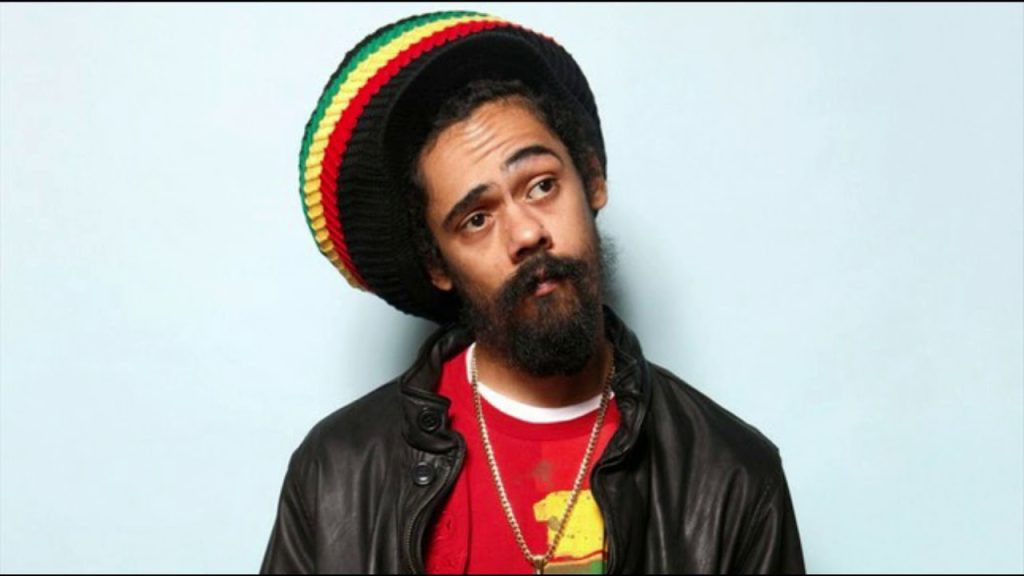 Damian Jr. Gong Marley on Stage
Damian Jr. Gong Marley on Stage
Damian “Jr. Gong” Marley, born July 21, 1978, is Bob Marley’s youngest son, born to Cindy Breakspeare, Miss World 1976. Damian has achieved international recognition as a Grammy-winning reggae artist known for his distinctive voice and socially conscious lyrics. His groundbreaking albums “Welcome to Jamrock” and “Stony Hill” have garnered critical acclaim and commercial success, blending reggae with hip-hop and dancehall influences to create a signature sound.
Sharon Marley
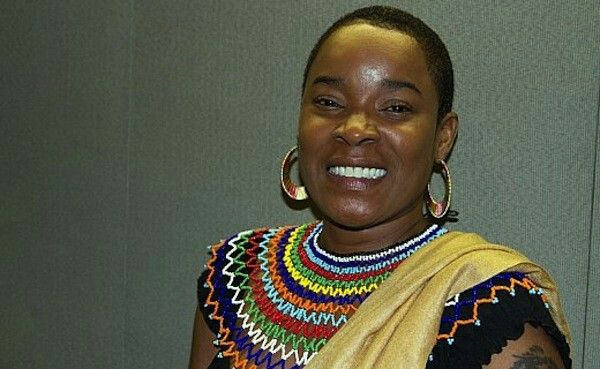 Sharon Marley Portrait
Sharon Marley Portrait
Sharon Marley, born November 23, 1964, is Bob Marley’s daughter (Rita Marley’s daughter adopted by Bob). While also a singer and dancer, Sharon’s primary contribution to the Marley legacy lies in her entrepreneurial and philanthropic work. She is a co-founder of the Bob Marley Foundation, a non-profit organization dedicated to promoting education, culture, and community development in Jamaica and beyond. Sharon has been instrumental in preserving and promoting her father’s legacy through charitable initiatives and cultural projects.
Cedella Marley
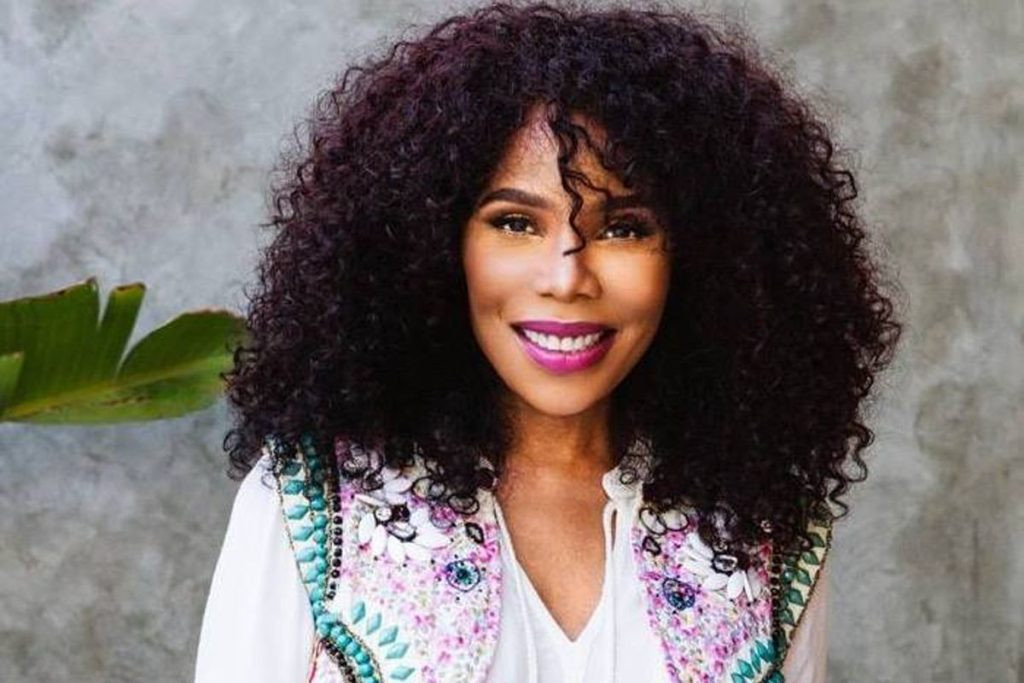 Cedella Marley Smiling
Cedella Marley Smiling
Cedella Marley, born August 23, 1967, is Bob and Rita Marley’s daughter. Cedella is a multifaceted creative force as a singer, author, and fashion designer. She has released albums like “Awake Zion” and “Country Living” and authored children’s books inspired by her father’s music and message. Cedella also holds a significant position as the CEO of Tuff Gong International, the record label and merchandise company founded by Bob Marley, ensuring the continued reach of his music and brand.
An Enduring Melody: The Marley Family’s Ongoing Musical Influence
The Marley family’s collective impact on music is undeniable. Ziggy Marley’s multiple Grammy Awards, including seven for Best Reggae Album, underscore his consistent excellence in the genre. Damian “Jr. Gong” Marley’s groundbreaking Grammy win outside the reggae category for “Road to Zion” (with Nas) highlighted the genre-bending potential of reggae and its wider influence.
Stephen Marley’s production prowess has earned him numerous Grammy Awards for his work with his siblings and other artists, solidifying his role as a key architect of contemporary reggae. His solo work further showcases his musical depth. Ky-Mani Marley’s fusion of reggae with hip-hop and R&B demonstrates the Marley family’s willingness to innovate and expand musical boundaries. Beyond their individual successes, the Marley family as a whole represents a powerful and continuing force in global music.
Frequently Asked Questions About the Bob Marley Family Tree
How many children did Bob Marley acknowledge?
Bob Marley acknowledged 11 children. With his wife Rita Marley, he had Ziggy, Stephen, and Cedella. He also adopted Rita’s daughters Sharon and Stephanie. Additionally, he fathered Rohan, Karen, Stephanie, Julian, Damian, and Ky-Mani with other partners.
Which of Bob Marley’s children are most musically famous?
Ziggy, Damian, and Stephen Marley are arguably the most musically renowned of Bob Marley’s children. Ziggy has achieved consistent success with his band and solo work. Damian “Jr. Gong” Marley has garnered international acclaim and Grammy Awards. Stephen Marley is celebrated as both a performer and a highly sought-after producer. Ky-Mani Marley also maintains a successful career as a reggae artist.
Are there grandchildren of Bob Marley in the entertainment industry?
Yes, several of Bob Marley’s grandchildren are making their mark in the entertainment industry. Skip Marley, Cedella Marley’s son, has gained significant recognition as a singer-songwriter with hits like “Slow Down.” Jo Mersa Marley (son of Stephen Marley, sadly passed away in 2022) was a rising reggae artist. These examples illustrate the continuation of the Marley family’s musical legacy into the next generation.
What was Bob Marley’s impact beyond music?
Bob Marley transcended music to become a global cultural icon. He was a symbol of resistance, advocating for social justice, equality, and peace. His Rastafarian beliefs and Pan-Africanist ideals resonated globally, inspiring movements for liberation and empowerment. His music became a voice for the marginalized, spreading messages of love, unity, and hope across borders and cultures.
How did Bob Marley contribute to the global spread of reggae and Rastafari?
Bob Marley is widely credited with popularizing reggae music on an international scale and raising global awareness of the Rastafari religion and movement. Through his captivating performances and iconic songs like “One Love” and “Redemption Song,” he introduced reggae’s distinctive rhythms and Rastafarian-infused messages to audiences worldwide. His global tours and the universal themes in his music helped propel reggae to international prominence and spread the core tenets of Rastafarianism.
READ MORE: Explore further into the world of reggae music and its legends.
Authored by Content Specialist at hudsonfamily.net
